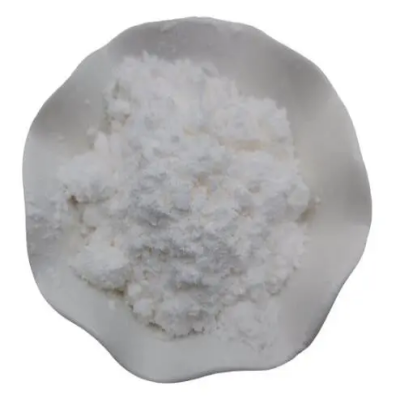Methylmalonicacid CAS:516-05-2
Methylmalonic acid holds significance in medical diagnostics, biochemical research, and clinical management due to its association with various health conditions and metabolic processes. One primary application lies in its role as a biomarker for assessing cobalamin (vitamin B12) deficiency. Increased concentrations of methylmalonic acid in blood or urine samples are indicative of impaired B12 metabolism, assisting in the diagnosis and monitoring of B12-related disorders such as pernicious anemia and other conditions affecting vitamin B12 status. Moreover, methylmalonic acid serves as a valuable tool in identifying inborn errors of metabolism, particularly those related to organic acidemias. Its measurement in bodily fluids aids in the detection of specific metabolic disorders, guiding healthcare professionals in making accurate diagnoses and providing appropriate treatment strategies for affected individuals. Additionally, research into the physiological functions and regulatory mechanisms of methylmalonic acid contributes to a deeper understanding of cellular metabolism and the interconnected pathways involving B12-dependent enzymatic reactions. This knowledge supports advancements in metabolic biochemistry, paving the way for targeted therapeutic interventions and the development of novel approaches for managing metabolic disorders linked to methylmalonic acid metabolism. Furthermore, the compound's relevance extends to studies focusing on kidney function and renal health. Methylmalonic acid levels are considered in the context of renal dysfunction and chronic kidney disease, providing insights into its potential role as a marker for assessing renal impairment and metabolic complications associated with kidney disorders. In summary, the applications of methylmalonic acid span medical diagnostics, metabolic disorder identification, biochemical research, and insights into cellular metabolism. Its role as a biomarker for vitamin B12 deficiency and inborn errors of metabolism, its contribution to understanding metabolic pathways, and its relevance to kidney function underscore its significant impact in healthcare, biomedical research, and clinical practice. Ongoing investigation into the physiological functions and clinical implications of methylmalonic acid continues to drive progress in the fields of clinical chemistry, metabolic medicine, and personalized healthcare, underscoring its importance in advancing our understanding of metabolic health and disease.



| Composition | C4H6O4 |
| Assay | 99% |
| Appearance | white powder |
| CAS No. | 516-05-2 |
| Packing | Small and bulk |
| Shelf Life | 2 years |
| Storage | Store in cool and dry area |
| Certification | ISO. |





![2-bromo-N-[4-chloro-2-(2-chlorobenzoyl)phenyl]acetamide CAS:5504-92-7](https://cdn.globalso.com/xindaobiotech/VYH6FUCIIBE_I7B6OOPY103.png)



